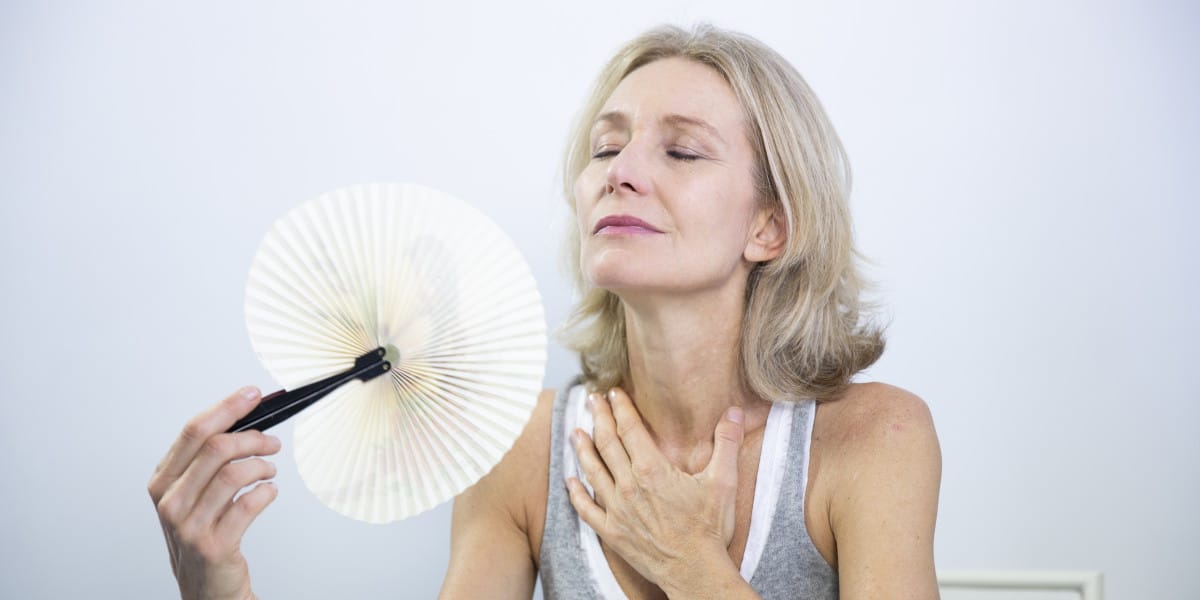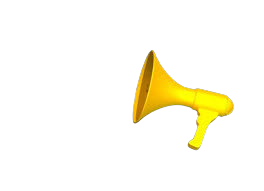What is menopause
Menopause is a three-stage transition into a new phase of life. These phases include:
- perimenopause
- menopause
- postmenopause
The menopausal transition is a natural part of aging and denotes the end of a menstruating person’s reproductive years. It is defined as 12 months without a menstrual period. The average age for menopause in the United States is 51.
Perimenopause is a process that can occur over many years — when the ovaries gradually begin to produce less estrogen and completely stop releasing eggs. The symptoms we associate with menopause — hot flashes, night sweats, mood swings, brain fog, etc. — are actually symptoms of perimenopause.
Postmenopause is the final stage, which lasts for the rest of your life. Many of the menopausal symptoms stop during this phase, but other health risks increase due to your decreased levels of estrogen.

What are the signs and symptoms of menopause?
While many people will experience at least one of the common signs and symptoms of menopause, some people don’t experience any at all. Common symptoms include:
- low libido
- pain during intercourse
- vaginal dryness
- incontinence
- hot flashes and night sweats
- anxiety
- mood swings
- insomnia
- difficulty with memory or concentration
- increased facial hair
- hair loss
- dry skin
- weight gain
- high blood pressure
- loss of breast fullness
What are the best vitamins for menopause?
While not a vitamin, estrogen therapy is the most effective treatment for menopause symptoms. However, hormone replacement therapy can introduce new problems or risks so many women seek alternatives to this therapy. For example, women with a history of breast cancer cannot take exogenous hormones.
During the menopausal transition, it’s important to maintain a healthy lifestyle as your metabolism slows and hormone production decreases. Eating a healthy diet full of fruits and vegetables can go a long way toward relieving perimenopausal symptoms.
While there are many vitamins to help with menopause symptoms, certain vitamin and mineral supplements work best to balance fluctuating levels of estrogen and progesterone. Supplements taken during perimenopause and menopause can prevent or reduce the severity of symptoms.
The vitamin and minerals that support women’s health during menopause include:
Calcium and menopause
Calcium during menopause is critical to maintaining bone health and preventing bone loss. A decrease in bone density (osteoporosis) during menopause can increase the risk of bone fractures, which can lead to other health problems.
A calcium-rich diet includes dairy products and leafy greens. Dietary calcium is preferable to supplements, but if a menopausal person suffers from gastrointestinal issues or lactose intolerance, they may not be ingesting enough dietary calcium.
Calcium is a safe supplement but should be taken in moderation.
Does vitamin D help with menopause?
Vitamin D is called the “sunshine vitamin” because sun exposure is the best source of your daily vitamin D dose. If you work indoors all day or don’t live here in sunny SoCal, you might not be getting enough vitamin D from sun exposure. In that case, it’s important to get vitamin D from food (such as fatty fish, egg yolks, or foods fortified with vitamin D) and/or other menopause supplements
Vitamin D is important for the prevention of the following health conditions in menopause:
- osteoporosis
- heart disease
- increased blood sugar
- cancer
- Infections
- neurodegenerative diseases
A study confirmed the association between vitamin D levels and health-related quality of life among women aged 50 years and older. Participants in the study with higher blood levels of vitamin D were significantly less likely to report problems with mobility, usual activities, depression, and anxiety.
Other studies have found links between vitamin D and hot flashes.
Does vitamin B12 help with menopause?
Vitamin B12 is always essential for health and well-being, but levels can drop during menopause. Insufficient vitamin B levels in menopause can be caused by increased demand by the body, malabsorption problems, and increased intake of medicines that interact with vitamin B metabolism.
Vitamin B12 is a vital component in red blood cell production as well as nerve and brain function. Low levels of B-12 in menopausal women are associated with the following:
- fatigue
- memory problems
- nerve damage
- dementia
- mood changes and irritability
B12 is essential to the body’s production of serotonin, which affects well-being, including overall mood and emotions. Keeping your B12 levels up with diet (fortified grains and legumes) and dietary supplements during perimenopause can help soften some menopausal mood swings.
Vitamin B6 and menopause
Vitamin B6 (pyridoxine) is also involved in the production of serotonin. As women age, serotonin levels drop. Fluctuations in serotonin levels may contribute to mood swings and depression — which are common in menopause.
According to Harvard Health, adequate intake of vitamin B6 for menopause symptoms can provide relief for some menopause-related mood swings.
Purchase Any 4 IV's
Or Injections & Get The 5th Complimentary
Call +1-877-760-3564 Or Click Here to Send Us Email

Does vitamin E help with menopause?
Scientific studies have found that vitamin E can decrease symptoms of menopause due to its antioxidant properties. Antioxidants reduce the number of free radicals that build up in cells and cause damage.
Observational studies have shown success in using vitamin E for hot flashes and night sweats — some of the more unpleasant symptoms of perimenopause.
While there are several vitamins that help with hot flashes, vitamin E is one of the best.
Does magnesium help with menopause?
Magnesium plays an important role in cartilage and bone matrix calcification which increases bone strength — preventing osteoporosis. Approximately 60% of the body’s magnesium is stored in the bone.
When estrogen levels decline, there is a spike in bone loss. Adequate magnesium levels may slow the rate of this process.
Healthy magnesium levels also support menopausal women by:
- Improving sleep.
- Lowering depression and anxiety risks.
- Supporting heart health.
Natural menopause supplements
While vitamins and minerals are natural and essential for healthy functioning of the body, some people want treatments that are even more natural.
One such natural, plant-based supplement are phytoestrogens. Phytoestrogens possess estrogen-like properties and allegedly help reduce menopausal symptoms by maintaining hormonal balance. Soy isoflavones (phytoestrogens found in soybeans) have been shown to reduce the frequency and severity of hot flashes.
Herbs such as red clover, black cohosh, dong quai, wild yam root, and chasteberry have also been hailed as natural remedies for menopause symptoms because of their phytoestrogen qualities.
Do keep in mind, herbs and other natural remedies are not approved by the FDA and may interact with medications or cause unexpected side effects. Always consult with your healthcare provider before adding any new supplements to your routine.
Probiotics during menopause
Declining estrogen levels during perimenopause lead to changes in gut bacteria. Compared with pre-menopausal women, postmenopausal women have lower levels of several types of gut organisms.
An imbalance of good and bad bacteria in the digestive tract can interfere with the body’s ability to absorb and use vitamins and nutrients effectively. This imbalance may cause unpleasant symptoms like bloating and gas.
Probiotic supplements can support a healthy gut by balancing the good and bad bacteria. Key hormones like serotonin are made in the digestive tract, so keeping it healthy is important for proper functioning.
Can IV vitamin therapy improve your menopause symptoms?
Many vitamins can support your health and quality of life through the transition of menopause. And plenty of those vitamins can also improve symptoms and make the transition easier! But how to make sure you’re getting enough of what you need?
There are plenty of menopausal multivitamins on the market right now, but they have set formulas. With IV vitamin infusion, we can get you just the vitamins your body needs in just the right amounts. And unlike multivitamins, you can get your vitamin fix in one relaxing IV session every few weeks or months rather than adding another tablet to your daily routine.
Why choose IV Vitamin Therapy for vitamin replacement in menopause?
Dr. David Nazarian is board certified in internal medicine and highly trained in the field of traditional and alternative medicine. He has been utilizing IV fluids and vitamin replacement therapies in conjunction with other treatment modalities to treat a variety of medical illnesses and conditions for over 10 years.
Our medical office follows strict guidelines and standards to ensure each patient receives the highest quality sterile vitamins compounded from the best pharmacies only. Our IV drip clinic utilizes only the very best vitamins purchased only from the best pharmacies and thus ensures that it has gone through a set of sterile processes, and quality assurances that meet our highest standards.
We are confident that if you have received IV vitamin treatments in the past at other places you will recognize the difference between our vitamins, our facility, and our practice.
Where can I get IV vitamin therapy near me?
Busy? Our mobile IV therapy will come to you. Many of our clients who prefer to receive injections in the privacy of a home, hotel room, or office can choose our popular concierge house call service for mobile IV.
IV Vitamin Therapy is conveniently located in Beverly Hills and can provide IV services come to your home, hotel room, or office throughout the Los Angeles area. We serve patients near Beverly Hills, Bel Air, West Hollywood, Santa Monica, West Los Angeles, Culver City, Hollywood, Venice, Marina del Rey, Malibu, Manhattan Beach, Redondo Beach, Downtown Los Angeles, Encino, Woodland Hills, Sherman Oaks, Calabasas, Burbank, Glendale, Hidden Hills, Agoura Hills, Northridge, North Hollywood, Topanga, Canoga Park, Reseda, Valley Glen, Chatsworth, West Hills, Orange County, Winnetka, Universal City, Silverlake, Echo Park, and many more.
Book now at 877-760-3564 or make an appointment online.
Purchase Any 4 IV's
Or Injections & Get The 5th Complimentary
Call +1-877-760-3564 Or Click Here to Send Us Email

